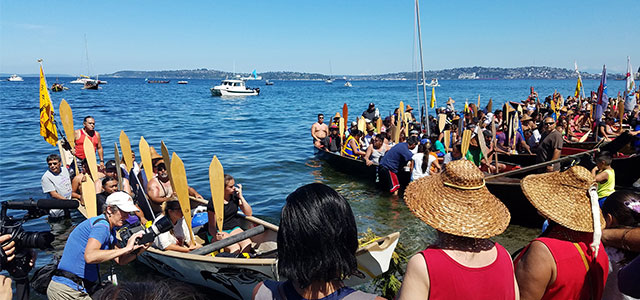
Serving Native American Tribes is rewarding, but comes with its own set of challenges to preserve the spirituality and tradition of each tribe. The goal isn’t to “transform” a system, but rather, to work strategically to help navigate their existing resources.
While many sovereign tribes act on their own as a city entity with independent laws and regulations, tourism has proven beneficial to business over the years. With the financials around casinos and memberships becoming difficult on a large scale to maintain, much less operate digitally. Here are some of the rewards and challenges toward working with tribes that we’ve learned over our years in business since 1993:
Community Steeped in Tradition
Working alongside tribes that honor their history and roots on a deep, spiritual level is important to hold in reverence and respect. While that’s part of what makes working with Native American Tribes so rewarding, it can also pose challenges when it comes to proposing new ways of doing things. Just because a system isn’t “efficient” in the eyes of a business practice, sometimes doesn’t mean it needs to be “fixed.” Finding that balance between their land, spirituality, and what’s able to be changed that honors their beliefs isn’t always an exact science (and isn’t meant to be).
How Native Americans are understanding and processing their past is always evolving as they discover more about their ancestry and world. Culturally, this can translate into doing things differently or shifting an approach – and that comes with its own challenges.
Understanding Tribal Sovereignty
With so many independent tribes, many function as a large family unit rather than a business. That means they’re run more like small cities and not large-scale corporations intent on budgets, overhead, and so on. Currently, 574 federally recognized Native American tribes exist, meaning there’s room for different laws, regulations, and systems that are often directly tied to previously mentioned traditions. There’s also more than 200 tribes that aren’t federally recognized or funded by the Bureau of Indian Affairs.
This means funding can be difficult for other tribes not recognized. We help tribes of all sizes, regardless of whether they’re recognized or not, but it’s a challenge to understand the nuances of each. However, helping them establish profitability and resources is immensely rewarding once digitization is set up for current and future generations.

Collaborating With Families
Many of these tribes are run by families who are tasked with caring for a lot of people, a lot of land, with a set amount (or limited amount) of resources. The challenge is taking the time to work alongside families to map out a system that will work well for their specific needs – but the end result is quite rewarding. Finding common ground to understand their needs is the top priority, above all else.
These software systems help tribes keep track of members and gain efficiencies in order to run smoother and manage their daily tasks in a way that’s easier.
Since there are so many technicalities around memberships and the laws of the land, it’s important to take the time and build the relationship where we can be the most beneficial and make the biggest impact. It’s embracing a collaboration mindset and identifying needs that truly creates positive change in the lives of the tribe members.
Always Demonstrate Listening and Learning
Tribal leaders are to be treated with the respect of government officials and have their own priorities and concerns to worry about that people outside often aren’t privy to. Since the tribes are so different, it’s never right to assume or generalize all needs in one bucket. The rewarding aspect is taking that initial conversation to learn about who they are and what their common pain points and issues are so we can be of the greatest help. While those can be challenging in that they pivot and change over time unexpectedly, it helps having that communication channel open.
Working Together and Helping Where Needed
As we mentioned, working with Native American tribes isn’t about overhauling their system – simply recommending what’s best and collaborating on the best route to pursue. While the uniqueness of every tribe reveals some challenges and unexpected twists and turns along the way, the rewarding aspect of helping families succeed and gain wealth and productivity in their everyday lives far outweighs any of the roadblocks that may occur.
Since 1993, We have provided tribal organizations with software to unite their service departments, centralize their reporting, and better serve their members. Contact us to learn more.
Sign Up For Our Newsletter
Recent Posts
- Innovations in Housing: Revolutionizing Tribal Housing with Digital Tools for Management
- Empowering Tribal ICW Departments: Achieve ICWA Compliance and Certification Success with OneTribe® Software
- OneTribe CCA - Your Child Care Data Tracker Replacement Solution
- Transform Your Tribal Member Services With Integrated Software Solutions
- Intertribal Software Raises Strategic Investment
Categories
- OneTribe Software
- digital transformation
- tribal government software
- Laserfiche ECM
- Intertribal Software Consultants
- Childcare Assistance
- Housing Management
- Intertribal Software
- tribal member management
- AFCARS Data Collection
- Child Care Data Tracker
- Child Welfare
- Housing
- ICWA
- ICWA Compliance
- Indian Child Welfare Act
- OneTribe Platform
- Title IV-E Certification
- Tribal Data Tracker
- Tribal Family Services
- Tribal Housing
- Tribal ICWA Software



